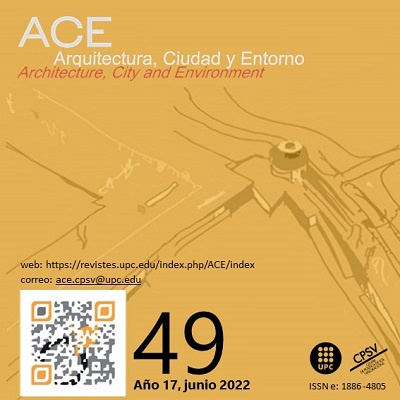How to Measure the Impact of Citizen Initiatives on Urban Sustainability?
DOI:
https://doi.org/10.5821/ace.17.49.10413Keywords:
Citizen participation, evaluation methodology, sustainable living habitsAbstract
Citizen initiatives (CIs) arise in response to various issues felt by the community that undoubtedly have an impact on their quality of life, and are materialised through innovative practices at different levels of society. The contribution of CIs in the transition towards sustainable cities is a topic of growing interest. The dynamics of social processes merit monitoring, reflection and analysis, to understand and harness the potential of CIs to generate improvements in community sustainability and robust and reliable systems to reaffirm and enhance their value, but the question arises: How can they be evaluated? Initial evaluation methodologies exist, with the aim of measuring the real impact of these, although their application is scarce. This review article aims to analyse existing evaluation methodologies that measure the impact of CIs in different fields, through an analysis of the main characteristics of three existing sustainability evaluation systems in CIs. Its methodology and results are investigated, using the SALSA framework, which organizes the review process into Search, AppraisaL, Synthesis, and Analysis. As a result, a catalogue of possible improvements to be implemented in order to create more homogeneous and multidisciplinary evaluation systems is created. It is concluded that today, the existing systems are a methodological framework to be developed and improved in order to generate systems that transversally and holistically evaluate the CIs and its importance in the transformation of society.
Downloads
Published
Issue
Section
License
| INTELECTUAL PROTECTION CRITERIA |
At this moment, it is count with the "Oficina Española de Patentes y Marcas", while global protection it is being processed by the World Intelectual Property Organization (OMPI/WIPO). Nevertheless the International Standard Serial Number Office (ISSN) has given the following numbers ISSN: 1886-4805 (electronic version) and 1887-7052 (paper version). All articles will be peer reviewed, using double blind reviewing. |
| COPYRIGHT |
The article contents and their comments are authors exclusive liability, and do not reflect necessarily the journal editor commitee's opinion. All ACE published works are subject to the following licence CC BY-NC-ND 3.0 ES http://creativecommons.org/licenses/by-nc-nd/3.0/es/ It implies that authors do not hold nor retain the copyright without restrictions but only those included in the licence. |


































